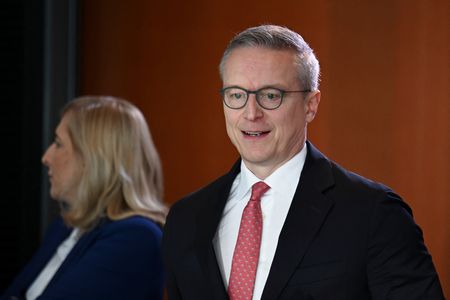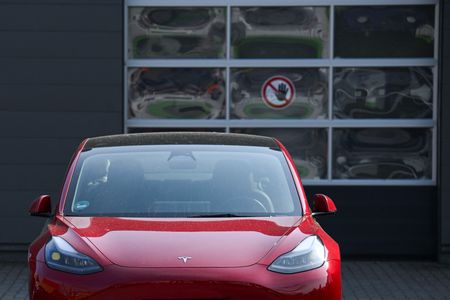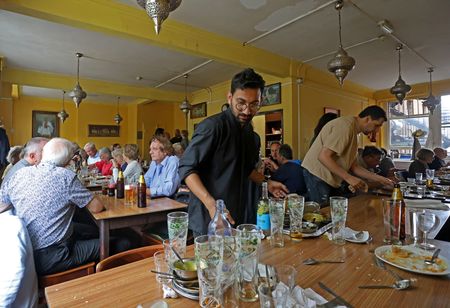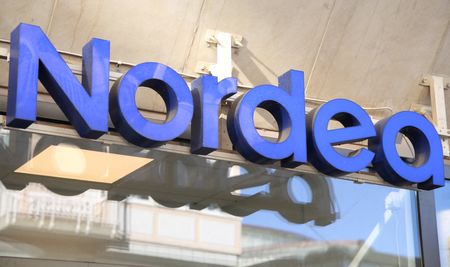By Tom Käckenhoff and Bernadette Hogg
(Reuters) -German steel processor Kloeckner & Co said it was focusing on expanding its defence footprint in its home market after it reported third-quarter results on Wednesday.
Germany loosened its stringent debt rules in March to create an exemption for defence spending, which it plans to boost to 3.5% of gross domestic product by 2029, above the NATO target of 2% which it only reached in 2024.
Kloeckner has seen increased demand from the defence industry and is active in Germany and the U.S., especially in shipbuilding, CEO Guido Kerkhoff told a press conference.
“It will play a much bigger role for us,” Kerkhoff said about the defence sector, adding that while demand was not as great as for other industries such as automotive, the quantities ordered were growing.
Earlier this year, Kloeckner broadened its portfolio into defence with the acquisition of Cologne-based Ambo-Stahl, which specializes in wear-resistant and high-tensile special steels, ballistic and armour steels.
“(Defence) is a good niche for us because we are good at metalworking and can grow it from the current small-batch production,” Kerkhoff said.
The company said it had received an official certification for processing armour materials for the German Federal Armed Forces at its Kassel site, and was preparing for upcoming large-scale defence orders from across Europe.
The steel and metals processor said its shipments grew 1.9% to 1.144 million metric tonnes in the third quarter, mainly helped by growth in the Kloeckner Metals Americas segment.
It posted adjusted core profit (EBITDA) of 43 million euros ($50 million) for the period that ended on September 30, doubling its result from last year, as the positive trend seen in previous quarters continued.
Kloeckner Metals Europe made its first positive contribution to EBITDA since 2023, the company said in an earnings presentation, despite the difficult market environment.
($1 = 0.8575 euros)
(Reporting by Tom Käckenhoff and Bernadette Hogg, editing by Matt Scuffham and Milla Nissi-Prussak)







